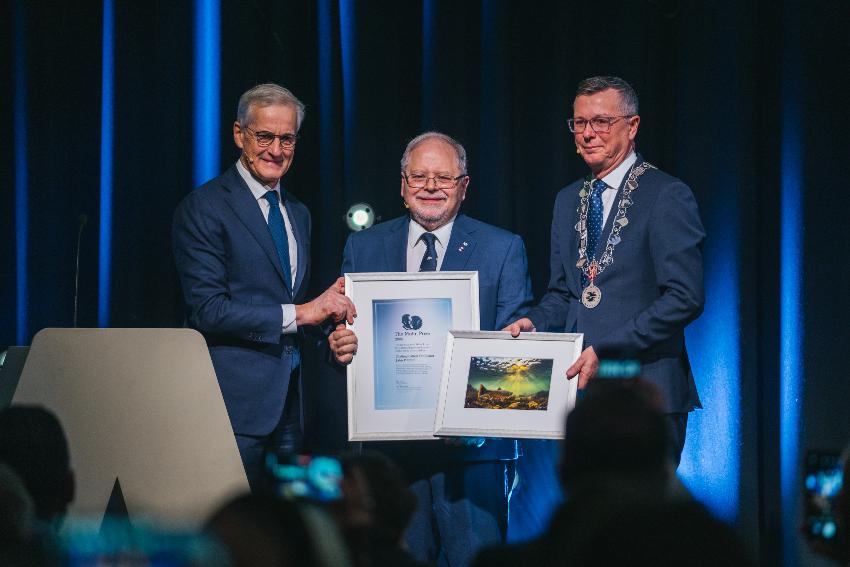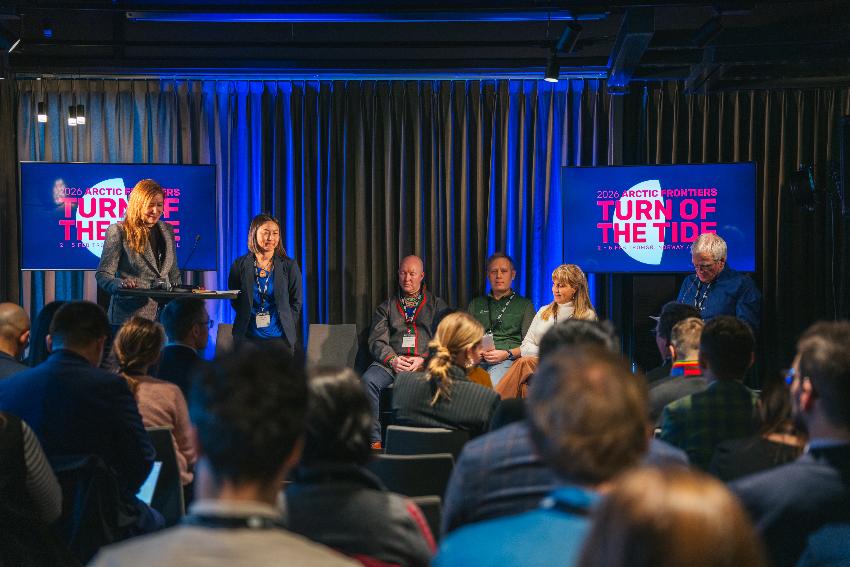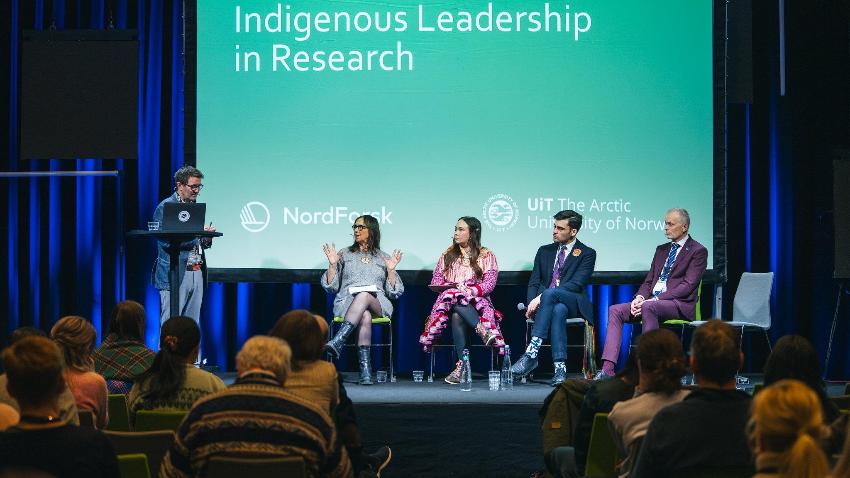Will share knowledge and resources with Czech researchers
UiT has signed an agreement with the University of South Bohemia that could open up for more research collaboration with Czech researchers in fields such as polar research and aquaculture.

Czechia is a landlocked country in the middle of Europe, far from the sea, and characterized by sharp contrasts to Northern Norway in terms of geography, population, transportation, industry, and business. Nevertheless, it became clear that the researchers in both countries have quite a lot in common when UiT was visited by a delegation from Czechia on September 12.
Among others, Marek Ženíšek, the country's minister for science, research, and innovation, David Červenka, the Czech ambassador to Norway, and Pavel Kozák, rector of the University of South Bohemia in České Budějovice (USB), participated.
Facts about UiT's Collaboration with Partners in Czechia
- Facts about UiT's Collaboration with Partners in Czechia
- From 2011 to 2023, 335 articles were co-published where UiT researchers and Czech colleagues were co-authors.
- UiT has exchange agreements with 10 Czech universities and research institutions.
- UiT has recently signed a letter of intent with the University of South Bohemia (USB) that could strengthen exchange and research collaboration.
- UiT will collaborate with USB in Svalbard, where the university has its own polar research station in Longyearbyen.
A few days before they arrived in Tromsø, the delegation also visited the Czech polar research station in Longyearbyen, which is managed by the University of South Bohemia. The station houses around 100 researchers from all over the world on an annual basis. The Czech researchers there specialize in botany, ecosystems, climate change, and geology among other fields of research.
Additionally, the delegation participated in a ceremony in Svalbard, where they marked the tenth anniversary of the establishment of the research station.
By making better use of shared resources within Arctic research, I believe we can create a lot of exciting collaboration in the future.

Agreement creates new opportunities
From 2011 to 2023, there were 335 articles co-published where UiT researchers had Czech co-authors. UiT also has exchange agreements with 10 Czech universities and research institutions.
Now, UiT is in the process of expanding its collaboration with Czechia by including a new partner on the list. UiT and the University of South Bohemia have signed a MoU that opens up for strengthening both student exchange and research collaboration.
The new agreement could boost collaboration in polar research, but also in aquaculture where both universities have strong scientific traditions. UiT and USB can then share knowledge about commercial and sustainable solutions for fish farming facilities and the protection of ecosystems, in both saltwater and freshwater.
"The agreement we have signed will help to strengthen the exchange of students, but also research collaboration. It also gives us a better starting point to meet the challenges we face in today's world," says Ženíšek.
It's important that we can observe climate changes up close in the Arctic and that we are able to make predictions about what will happen in the future.
Climate change and security policy
UiT has exchange agreements with these partners in Czechia:
Brno University of Technology
Charles University, Prague
College of European and Regional Studies
Czech Technical University in Prague
Institute of Technology and Business in České Budějovice
Masaryk University
Silesian University in Opava
Technical University of Liberec
University of Chemistry and Technology Prague
University of West Bohemia
Ženíšek adds that Czechia, like other European countries, is increasingly affected by climate change, which has major consequences for infrastructure, food production, and ecosystems.
"It's quite strange that we have strong storms in Central Europe at this time of year. This is something we need to be able to talk openly about and not be afraid to address. It's important that we can observe climate changes up close in the Arctic and that we are able to make predictions about what will happen in the future," says Ženíšek.
He also points out that both Norway and Czechia play a key role in the tense security situation brought about by the war in Ukraine. Both countries have a leading defense industry that needs innovation and academic environments with high expertise on how Russia affects geo- and security politics.
Therefore, Ženíšek believes that Norway and the Czechia can build new platforms for research collaboration in such fields, which include both universities and the business sector.
UiT's rector Dag Rune Olsen agrees with Ženíšek's assessment of which fields UiT and USB can mutually benefit from closer cooperation.
"However, we can also add artificial intelligence as a field where we can build more cooperation. If we can achieve more student exchanges with Czechia, that's also an important step forward. We have told the minister that UiT is going to increase our activities in Svalbard, in Ny-Ålesund. By making better use of shared resources within Arctic research, I believe we can create a lot of exciting collaboration in the future," concludes Olsen.
-
Fiskeri- og havbruksvitenskap - bachelor
Varighet: 3 År -
Fiskeri- og havbruksvitenskap - master
Varighet: 2 År -
Akvamedisin - master
Varighet: 5 År -
Bioteknologi - bachelor
Varighet: 3 År -
Arkeologi - master
Varighet: 2 År -
Peace and Conflict Transformation - master
Varighet: 2 År -
Geosciences - master
Varighet: 2 År -
Biology - master
Varighet: 2 År -
Technology and Safety - master
Varighet: 2 År -
Physics - master
Varighet: 2 År -
Mathematical Sciences - master
Varighet: 2 År -
Biomedicine - master
Varighet: 2 År -
Computational chemistry - master
Varighet: 2 År -
Law of the Sea - master
Varighet: 3 Semestre -
Biologi - bachelor
Varighet: 3 År -
Medisin profesjonsstudium
Varighet: 6 År -
Nordisk - årsstudium
Varighet: 1 År -
Luftfartsfag - bachelor
Varighet: 3 År -
Pedagogikk - bachelor
Varighet: 3 År -
Arkeologi - bachelor
Varighet: 3 År -
Informatikk, datamaskinsystemer - bachelor
Varighet: 3 År -
Informatikk, sivilingeniør - master
Varighet: 5 År -
Likestilling og kjønn - årsstudium
Varighet: 1 År -
Historie - bachelor
Varighet: 3 År -
Geovitenskap- bachelor
Varighet: 3 År -
Biomedisin - bachelor
Varighet: 3 År -
Samfunnssikkerhet - bachelor
Varighet: 3 År -
Matematikk - årsstudium
Varighet: 1 År -
Ergoterapi - bachelor
Varighet: 3 År -
Fysioterapi - bachelor
Varighet: 3 År -
Radiografi - bachelor
Varighet: 3 År -
Samfunnssikkerhet - master
Varighet: 2 År -
Kunst - bachelor
Varighet: 3 År -
Kunsthistorie - master
Varighet: 2 År -
Farmasi - bachelor
Varighet: 3 År -
Farmasi - master
Varighet: 2 År -
Religionsvitenskap - årsstudium
Varighet: 1 År -
Romfysikk, sivilingeniør - master
Varighet: 5 År -
Sosialantropologi - bachelor
Varighet: 3 År -
Bærekraftig teknologi, ingeniør - bachelor
Varighet: 3 År -
Historie - master
Varighet: 2 År -
Odontologi - master
Varighet: 5 År -
Anvendt fysikk og matematikk, sivilingeniør - master
Varighet: 5 År -
Barnevernsarbeid - master
Varighet: 2 År -
Forfatterstudium 2 - årsstudium
Varighet: 1 År -
Fine Art - master
Varighet: 2 År -
Barnevern - bachelor
Varighet: 3 År -
Arctic Nature Guide - one year programme
Varighet: 1 År -
Sosialt arbeid - bachelor
Varighet: 3 År -
Arktisk friluftsliv og naturguiding - bachelor
Varighet: 3 År



